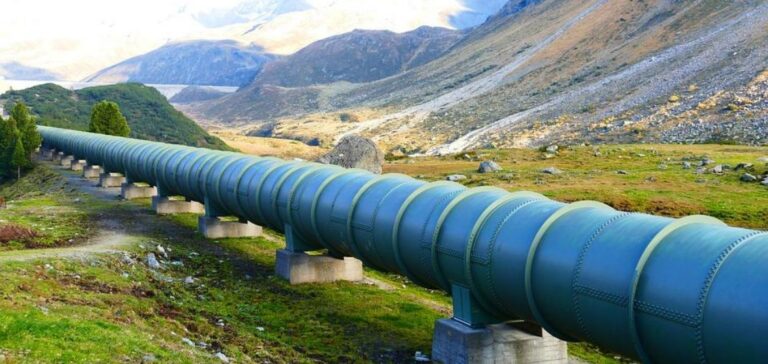A normalisation of energy relations between Russia and Europe, contingent on a durable peace agreement in Ukraine, could disrupt the balance of the liquefied natural gas (LNG) market, according to a report by consultancy Wood Mackenzie. In a scenario described as “stable peace”, the lifting of US sanctions on Russian projects and a significant recovery in gas deliveries to the European Union would reduce demand for US LNG, jeopardising several short- and medium-term Final Investment Decisions (FIDs).
Gradual lifting of sanctions and resumption of Russian flows
In this scenario, Russia could export up to 50 billion cubic metres of gas per year to Europe via pipelines, while LNG exports would resume at a level of 12 million tonnes per year. Gas prices at the Dutch TTF hub would fall below the US$8-9/mmbtu anticipated for 2028-2029, leading to an estimated underutilisation of 25 million tonnes per year of US capacity over the next five years. This structural drop in US exports would also weigh on Henry Hub prices, increasing the supply available for domestic electricity generation.
Forced compromise scenario: limited return of Russian gas
A peace agreement obtained under diplomatic pressure, notably from the United States and Russia, would allow for a partial easing of restrictions. However, the European Union would maintain its ban on the Arctic LNG-2 project, limiting Russian exports to 6 Mtpa. Some pipeline deliveries via Ukraine to Hungary and Slovakia might be authorised to prevent political deadlock within the EU Council. This moderate return would contribute to a quicker stabilisation of markets without significantly undermining investment in US capacity.
Prolonged conflict: strengthening of US and Qatari alternatives
If no agreement is reached, gas prices would remain high in the medium term, driven by limited Russian supply. The European Union could then tighten its sanctions, including banning flows from the Yamal LNG project and the TurkStream pipeline. This situation would increase European reliance on LNG, strengthening the position of suppliers such as the United States and Qatar, while encouraging new financial commitments in the sector.
Massimo Di-Odoardo, Vice President of Gas and LNG Research at Wood Mackenzie, stated: “The outcome of peace negotiations between Russia and Ukraine remains highly uncertain. All scenarios remain plausible, including combinations, although a peace agreement based on differing approaches by the United States and the European Union currently appears most likely.”





















